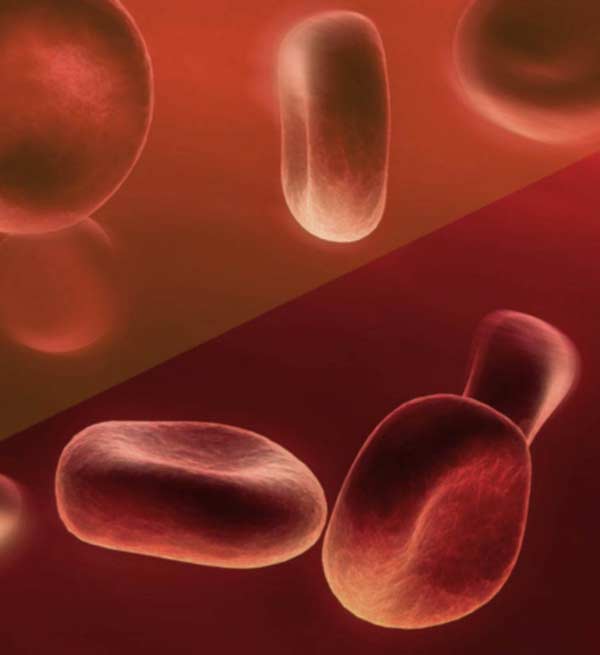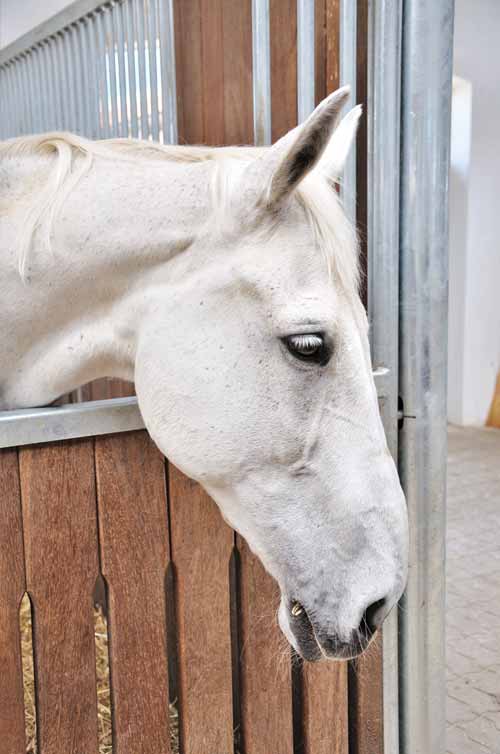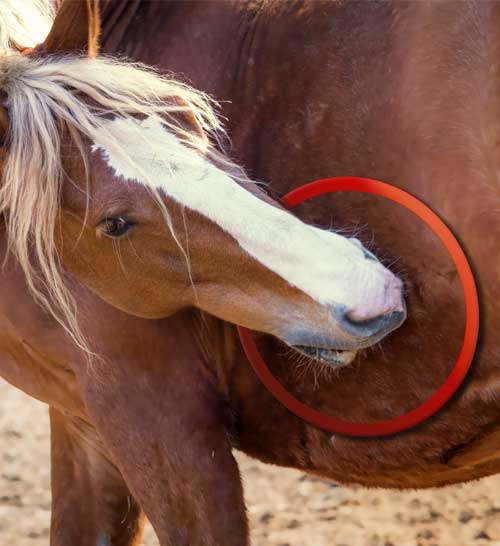Prevent & Protect Against Anemia in Horses

Nutrient Buffer® has been shown to aid horses with anemia by reducing the binding of iron to lactoferrin and releasing it into the blood and tissues.
Lactoferrin is an interesting molecule. It is opposite of most binding molecules in that lactoferrin can only hold iron within a low ㏗ (acid) environment. When the ㏗ rises, the lactoferrin releases the iron. This is an adaptive mechanism that helps protect from infections - especially bacterial infections. When there is a bacterial infection, there is also acidity at the cell level caused by inflammatory mechanisms. The low ㏗ activates the lactoferrin to bind to the iron and keep it unavailable to the bacterial infection. These bacteria thrive on excess iron in the blood.
Unfortunately, to much lactoferrin binding to the iron can also induce anemia by preventing iron from reaching the red blood cells - which causes the body to get tired and want to rest - in order to support the immune system in its fight of the infection. When the infection is gone, and the ㏗ rises to normal, the lactoferrin releases the iron and anemia is resolved too.
This is why we all need to be carefull when we use iron supplements. Nutrient Buffer® is a proven way to prevent anemia, by raising the ㏗, and you should consider trying it before you go with an iron supplement.
One problem for horses is that toxic environmental chemicals, like pesticides, herbicides and fungicides, find their way into hay and grain end up in their bodies. This causes an inflamatory stress response and lowers ㏗, as with a bacterial infection, this engages the lactoferrin to bind with the iron, creating the classic tired anemic symptoms and it can even cause ulcers and leaky gut syndrome as well as anemia.
Any sort of high level performance horse who is enduring tough workouts on a regular basis can fall victim to stress chemistry which induces inflamation and increases systemic acidity. These horses can develop anemia as a result, and it's not because of iron deficienies in their diet. If these horses are supplemented with iron it can cause iron overload without even touching on the cause of the anemia.




